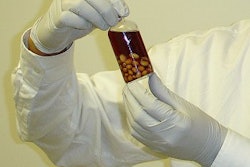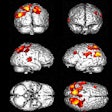Dear Molecular Imaging Insider:
Now that RSNA 2007 is in our collective rearview mirrors, it is time to review some of the groundbreaking research that highlighted the scientific presentations in Chicago.
Among them is a study from Jean Minjoz University Hospital in France, which found that the acquisition of PET images as long as six hours after FDG injection can be a beneficial technique in delineating gliomas from gray matter and detecting cerebral lymphomas.
Details and images of the study are found in this Molecular Imaging Digital Community Insider Exclusive, available by clicking here.
PET also was the center of attention in a study from the Cleveland Clinic in Ohio, which found that the surgical outcome in refractory epilepsy can be predicted by the modality, even in patients with frequent seizures or spiking activity. Click here to learn more.
Over the past several years, studies have demonstrated FDG-PET's ability to predict survival in patients with early-stage lung cancer. However, for people with advanced non-small cell lung cancer (NSCLC), PET has no prognostic value. That conclusion is based on a new 15-year study from Duke University Medical Center in Durham, NC.
Staff writer Eric Barnes details how the researchers sought to determine if the maximum standardized uptake value (SUVmax) on FDG-PET in patients with advanced NSCLC also correlated with survival in this report.
With a focus on keeping the environment clean and chemical-free as much as possible, a group from the University of Missouri-Columbia (UM) has developed a method of using natural ingredients to produce gold nanoparticles for the diagnosis and treatment of cancerous tumors.
The team uses gold salts, soybeans, and water -- and no manmade or potentially toxic chemicals -- in its process. Read about the success and potential of "going green" in nanoparticle production by clicking here.
Finally, on a personal note, thank you for supporting the Molecular Imaging Digital Community throughout 2007. We look forward to serving you in 2008 with continued coverage of relevant and novel information to advance the sciences.
Best wishes for a wonderful holiday season, and a healthy and prosperous new year.




















